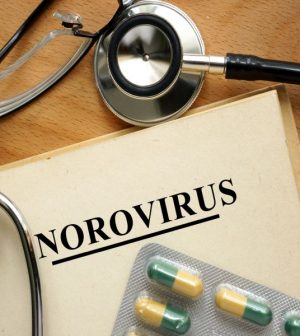- Could Your Grocery Store Meat Be Causing Recurring UTIs?
- Are You Making This Expensive Thermostat Error This Winter?
- Recognizing the Signs of Hypothyroidism
- 10 Strategies to Overcome Insomnia
- Could Artificial Sweeteners Be Aging the Brain Faster?
- Techniques for Soothing Your Nervous System
- Does the Water in Your House Smell Funny? Here’s Why
- Can a Daily Dose of Apple Cider Vinegar Actually Aid Weight Loss?
- 6 Health Beverages That Can Actually Spike Your Blood Sugar
- Treatment Options for Social Anxiety Disorder
How to Fight Norovirus, the ‘Cruise Ship’ Germ

Whether it’s infiltrating a cruise ship, a restaurant or a college dorm, the norovirus is often in the news. It’s the leading cause of illness from contaminated food in the United States.
While food can be tainted at its source, food workers who acquire the infection can unintentionally cause outbreaks as well, often by touching food with bare hands before serving it.
The virus causes gastroenteritis, an inflammation of the stomach and/or intestines. Symptoms like stomach pain, nausea, diarrhea and vomiting typically start within 48 hours of exposure. Though most people get better in a few days, norovirus can be serious in youngsters and older adults, because it can lead to dehydration.
Norovirus is very contagious. You can get it from sharing a fork with an infected person, eating contaminated food, or simply touching a contaminated surface. It’s also easily passed through an infected person’s stool or vomit. Though it’s hard to imagine how you could come into contact with someone else’s expulsions, researchers in North Carolina developed a machine that showed how violent vomiting can send a million small particles with pieces of the virus through the air.
To avoid getting or spreading norovirus, always wash your hands with soap and water before eating or handling food, and after using the bathroom or changing a baby’s diaper. Wash all fruits and vegetables, too. Cook oysters and other shellfish thoroughly since the virus can survive a temperature of 140 degrees Fahrenheit.
If the virus strikes your family, wear rubber or disposable gloves to clean and disinfect surfaces. Launder clothes and linens using your machine’s longest cycle, then machine dry them on high. Because the norovirus isn’t a bacterial infection, antibiotics won’t help. Focus on drinking fluids to prevent dehydration. And if you do get dehydrated, talk to your doctor or pharmacist about the right way to rehydrate.
More information
The U.S. Centers for Disease Control and Prevention has detailed information on norovirus including recent outbreaks.
Source: HealthDay
Copyright © 2026 HealthDay. All rights reserved.










